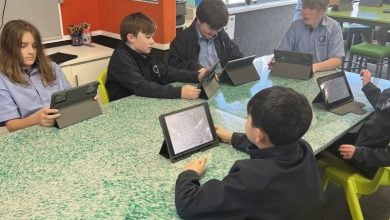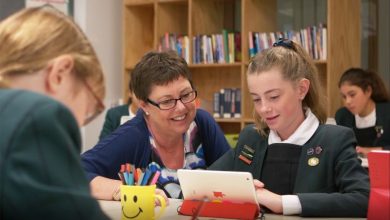
The thought occurred to me numerous times, while undertaking a postgraduate primary teaching course at the University of Auckland way back in the year 2000, that I had made a huge mistake.
It wasn’t all bad. There were many things to like. There were lots of nice people to engage with – students and lecturers. And the course itself offered some wonderful pedagogical and philosophical insights into the world of education.
Having a fire hose operating at full volume directed at you, feels like an apt description of that year as a teacher in training. But it wasn’t the workload and enormous volume of content that concerned me. I had expected as much. There was something more pressing that had me doubting my decision. There existed within me a dissonance that I was unable to articulate at the time. In hindsight, I can see that it was no accident that at some point during that year, I purchased a copy of John Holt’s 1967 book, “How Children Learn”.
In part, I had chosen teaching because of my previous experience of teaching children during my time as an ESOL teacher in Japan. I didn’t know the theory of teaching but I did know that I enjoyed relating to children. I had become inspired by that experience. I got a sense that teaching could be a calling for me, rather than just a job. It was that sense that sustained me throughout the year. The feedback I was receiving certainly wasn’t it. I had a strong feeling that my ability to engage with the children in front of me would compensate for my inability to produce lesson plans that passed muster.
It occurred to me recently that it feels like I have just completed an 18-year apprenticeship in teaching. To some, that may suggest that I am simply, ‘a slow learner’. At about the 10-year mark I finally got round to reading that book that I had purchased all those years ago. It was perfect timing really. I was on the verge of being burnt out. But also because I discovered Holt’s book to be revolutionary. It articulated all the doubts I had had about what I was being told was important about teaching during that training year. That an education focused on lesson plans, instead of the children in front of you, is not an education system that is working effectively.
Fast forward to the present and you will see Hattie and Bishop producing research to validate what Holt had already articulated. 18 years on, and having finally completed my apprenticeship, I find myself feeling relieved that what I also knew intuitively to be true, has been validated. That is, the cornerstone of effective learning is relationship. That the children need to be at the front and centre of their learning experience. That teachers need to trust children to be the best determiners of their ability. That they are able and willing to learn. According to Sir Ken Robinson, two of The Beatles, Paul McCartney and George Harrison, were told by their music teacher that they were lacking in talent.
Hattie and Bishop have laid out the road map for teachers to follow. This map indicates to us to follow the research and teach to the evidence that results from best practice. But while the best way forward may have been presented to us, there is still a long way to go to making this the new accepted practice.
At present, personal experience tells me that teaching as Hattie prescribes, is more likely to result in a teacher being labeled as “difficult” rather than as a teacher to be celebrated.
This submission is from Mark: you can check out more of his thoughts here: https://easeeducation.co.nz/. If you’d like us to share YOUR SAY, shoot an email to our editor: editorial@schoolnews.co.nz.






